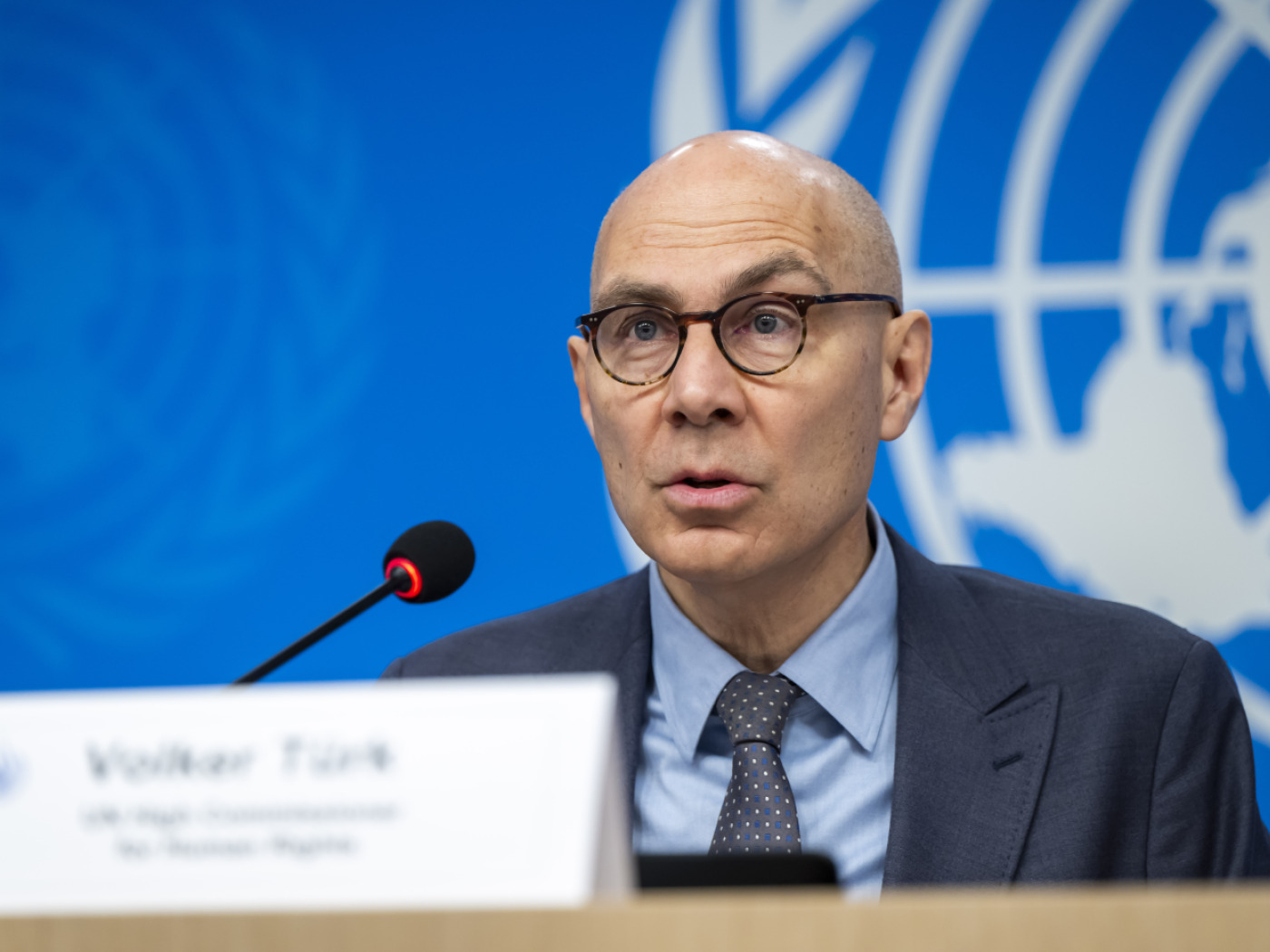
Cashflow problems affect UN Human Rights Council activities

Certain activities of the Geneva-based United Nations Human Rights Council cannot be carried out in 2025-2026 due of the ongoing cash crisis affecting the UN.
+Get the most important news from Switzerland in your inbox
After more than three weeks of work, the council declared on Tuesday that it was “concerned” about the situation.
In a decision approved by consensus, the UN rights council asked the United Nations High Commissioner for Human Rights, Volker Türk, for more information on the choices he had made. It urges Türk to explain the situation at future meetings, in particular at the end of August when the next council session is due to be organised.
In a letter dated mid-June to the president of the council, Jürg Lauber, the Swiss ambassador to the UN in Geneva, presented on Tuesday, Türk mentions around 15 reports that cannot be delivered as planned this year.

More
Is Geneva prepared for Trump’s – and others’ – cuts to foreign aid?
These include the report by the independent investigators into the situation in the Democratic Republic of Congo (DRC), where abuses were committed when the Rwandan-backed M23 rebels took the city of Goma in eastern DRC. A commission of inquiry is due to take over from a fact-finding mission established last February, and should have delivered its report by the end of 2026.
Alleged war crimes in the DRC
In an interim assessment published in mid-June, the current investigators accused the M23 of possible war crimes in eastern DRC. All parties to the conflict, including the Congolese army, were responsible for violations of human rights and international humanitarian law (IHL), they said.
According to analyses of the situation since January, no consideration has been given to the protection of civilians during and after the military operations between the M23 rebels and the Congolese army. In April, the Office of the United Nations High Commissioner for Human Rights (OHCHR) reported over 600 victims of summary and extrajudicial executions in North and South Kivu.

More
UN Human Rights Council faces a shifting world order
The mission is also due to assess alleged summary executions by Congolese soldiers and the Wazalendo militia. The latter are also alleged to have abducted civilians and imposed summary punishments. The investigators are also looking into allegations of arbitrary arrests and forced disappearances of suspected M23 supporters by the army. The violence claimed thousands of victims and displaced around a million people.
No Trump effect on resolutions on women
Among the other effects of the financial difficulties, a global consultation on the application of measures to guarantee the right to peaceful demonstration. This had been requested following a resolution put forward by Switzerland, but will not be carried out either. In another resolution, the council expressed alarm at the effects of the financial problems on the mandate of the Office of the High Commissioner in Colombia.
Several resolutions on women’s rights and LGBTQI rights were approved by the council. At a time when the United States is no longer a member of the body, and because of concerns linked to statements made by US President Donald Trump and the possible consequences for certain countries, the mandate of the special rapporteur on sexual minorities was extended with greater support than usual.
On Monday, Switzerland abstained on the issue of access to vaccines and medicines for all. Not a single European member of the council voted in favour of the text, which was nevertheless approved. Most of them deplored the fact that the wording was not in line with that of the agreement against pandemics recently approved at the World Health Assembly in Geneva.
Translated from German by DeepL/sb
We select the most relevant news for an international audience and use automatic translation tools to translate them into English. A journalist then reviews the translation for clarity and accuracy before publication.
Providing you with automatically translated news gives us the time to write more in-depth articles. The news stories we select have been written and carefully fact-checked by an external editorial team from news agencies such as Bloomberg or Keystone.
If you have any questions about how we work, write to us at english@swissinfo.ch

In compliance with the JTI standards
More: SWI swissinfo.ch certified by the Journalism Trust Initiative


























You can find an overview of ongoing debates with our journalists here . Please join us!
If you want to start a conversation about a topic raised in this article or want to report factual errors, email us at english@swissinfo.ch.